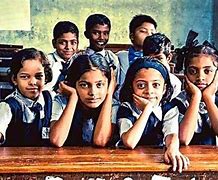World
Growing population worsens Africa’s extreme poverty: Report

Cape Town: A rapid rise in population has led to an increase in the overall number of extreme poor in Africa, the World Bank said in a report released on Friday.
But the report says Africa’s strong economic growth has contributed to improving people’s health and education in the past 20 years as well as major reductions in poverty in several countries, as per reported.
The report, titled “Poverty in a Rising Africa”, estimates that 388 million people – or 43 percent of all people living in Sub-Saharan Africa – lived in extreme poverty in 2012, the last year that figures were available, a decrease of five million people from 2011.
The report called for much better measurement of poverty, saying that data gaps make it extremely difficult for policymakers to target programs for the poor.
The report finds that progress in ending poverty in all its forms has varied greatly across countries and population groups, with the levels of achievement remaining challengingly low.
Africa posted the slowest rate of poverty reduction of all major developing regions, with the share of people living in extreme poverty (less than $1.9 a day) declining only slightly, from 56 percent in 1990 to 43 percent in 2012. But since 2012, extreme poverty fell to a projected 35 percent in 2015 in the region, based on the World Bank’s new poverty line of $1.9 a day.
Globally, the percentage of people living in extreme poverty will likely fall to under 10 percent for the first time, to 9.6 percent this year, according to Bank estimates released earlier this month.
Despite progress, more than 100 million more Africans lived in extreme poverty in 2012 compared to 1990, with at least 20 percent of the population estimated to be chronically poor.
Africa’s extreme poor live mainly in rural areas (home to 65-70 percent of the population), while the highest levels of inequality are recorded in Southern Africa, where six of the world’s 10 most unequal countries are located.
Conflict and violence are among the most important factors slowing economic growth or even reversing development gains.
Makhtar Diop, World Bank vice president for Africa, said the human toll of poverty in Africa remains unacceptably high. With the new target set by the Sustainable Development Goals to end extreme poverty by 2030, much more work is needed to accelerate poverty reduction.
“In particular, significant efforts must be made to boost productivity in agriculture, a sector that still employs most of the region’s poorest, and increase access to affordable and reliable electricity,” Diop said.
World
Lockdowns in China Force Urban Communities to Defy Censorship and Vent Frustration Online

Shanghai’s rich middle class is leading a wave of online dissent over the strict and prolonged lockdowns imposed in various parts of the country. Chinese internet censorship is struggling as patience is wearing thin in many urban centers, coming up with creative forms of online protests.
Social Media Posts Revealing Lockdown Tension in Shanghai
Drawn-out lockdowns are nothing new in China as authorities insist with the nation’s zero-Covid policy since the start of the pandemic. Currently over This time around, however, metropolitan areas like Shanghai are increasingly difficult to keep quiet, given that its more than 25 million residents have seen weeks of total isolation along with food shortages and many other service interruptions.
Dozens of towns and reportedly over 300 million Chinese citizens have been affected by lockdowns of different severity. As expected, urban netizens have been most outspoken over their difficulties by finding creative ways to get around state censorship and bans placed on topics, news comments and spontaneous campaigns.
Shanghai residents have been using mobile proxies and hijacking seemingly unrelated hashtags to talk about healthcare issues, delivery failures and the overall severity of their situation. The “positive energy” that the Chinese government wants to transmit during the recent prolonged series of lockdowns does not come naturally to those counting food supplies and online censors are working hard to filter words, trending topics and undesired social media sharing.
WeChat groups and message threads are under constant monitoring. Posts questioning the zero-Covid approach have been quickly deleted, including by leading Chinese health experts like Dr. Zhong Nanshan. Video footage is soon censored and protests and investigations are quickly made to disappear.
Where this has not worked, officials have exposed banners with warnings and outright threats like “watch your own mouth or face punishment”, while drones have been patrolling the city skies. Yet, if anything, this has led to further tensions and unspoken confrontation with Shanghai’s educated and affluent middle class.
Creative Online Solutions Harnessing Civic Energy
Announcements by Chinese social media that they would be publishing the IP addresses of users who “spread rumors” have not helped either. Tech industry research has shown that much of Asia’s tech-savvy population has a habit of using mobile proxies and other privacy tools, quickly finding workarounds to browse the internet freely and talk to the world about the hottest topics.
The sheer volume of forbidden posts is already a challenge for the very censorship system, experts explain. Unable to track all trending hashtags, state workers overlook topics that speak about the US, Ukraine or other popular news. Linking human rights elsewhere to their situation, Chinese online dissidents establish their informal channels and “hijack” the conversation to share personal or publicly relevant information about the Covid suppression in their town.
Sarcastic and satirical posts still dominate. Others hope to evade the censors by replacing words from famous poems or the national anthem. One thing is certain – social media, when harnessed with the right creativity, has proven its ability to mount pressure on the government in even some of the most strictly controlled tech environments like China.























